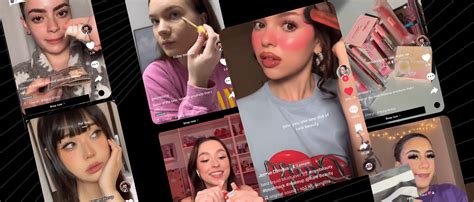
A TikTok influencer, @Ercreatore, filmed herself crying outside TikTok’s Culver City, California headquarters in response to the potential ban of the app in the United States, sparking a wave of reactions across social media, ranging from sympathy to mockery. The video, posted on May 8, 2024, shows the creator visibly distraught, lamenting the potential loss of income and community the platform provides, becoming a focal point in the ongoing debate surrounding TikTok’s future in the U.S.
The emotional display has ignited discussions about the economic dependence some creators have on the app, the broader implications of a potential ban on free speech and the creator economy, and the national security concerns that fuel legislative efforts to restrict or prohibit TikTok’s operation in the country.
The influencer, known as @Ercreatore on the platform, posted the video expressing deep concern over the potential ban, stating that TikTok is not only a source of income but also a platform for connection and community building. “I don’t know what I’m going to do if TikTok gets banned. This is my life. This is how I make money. This is how I connect with people,” she tearfully shared in the video.
The video quickly went viral, garnering millions of views and sparking a wide range of responses. While some viewers expressed sympathy and understanding, others criticized the influencer for what they perceived as an overreaction.
“Some people were like, ‘Get a job,’ and others were very supportive, saying they feel the same way,” noted one commenter on the platform, reflecting the divided sentiment surrounding the issue.
The potential ban stems from ongoing national security concerns raised by U.S. lawmakers regarding TikTok’s parent company, ByteDance, and its ties to the Chinese government. Critics fear that the Chinese government could access user data or influence content on the platform, posing a threat to national security.
Several bills have been proposed in Congress to address these concerns, including measures that would require ByteDance to divest from TikTok or face a ban in the U.S. The House of Representatives recently passed a bill that would give ByteDance approximately six months to sell TikTok, or the app would be banned in the United States. The bill is currently under consideration in the Senate.
The debate surrounding TikTok’s future in the U.S. raises complex questions about national security, free speech, economic interests, and the role of social media in contemporary society. The emotional reaction of influencers like @Ercreatore underscores the significant impact that a potential ban could have on the lives and livelihoods of millions of creators and users.
The situation highlights the growing reliance of individuals on social media platforms for income generation and community engagement, making the potential ban a significant concern for many. The incident also draws attention to the wider debate regarding data privacy, national security, and the influence of foreign governments on social media platforms operating within the United States. The broader impact of a potential TikTok ban extends beyond individual influencers, affecting businesses that rely on the platform for advertising and marketing, as well as users who use the app for entertainment, communication, and information.
Broader Context: The TikTok Saga
The TikTok saga is a multifaceted issue, encompassing national security concerns, economic implications, free speech debates, and the evolving landscape of social media. The core concern revolves around the app’s ownership by ByteDance, a Chinese company, and the potential for the Chinese government to access user data or influence the content disseminated on the platform.
Since its meteoric rise in popularity, TikTok has become a global phenomenon, particularly among younger demographics. Its algorithm-driven “For You” page curates personalized content feeds, making it highly addictive and engaging for users. This widespread adoption has made TikTok a powerful platform for communication, entertainment, and even political discourse. However, this power has also attracted scrutiny from governments and policymakers.
The U.S. government’s concerns about TikTok are not new. Under the Trump administration, similar attempts were made to ban or restrict the app, citing national security threats. These efforts were largely unsuccessful due to legal challenges and changing political dynamics. The Biden administration has continued to address the issue, seeking to strike a balance between protecting national security and respecting free speech rights.
The current legislative efforts in Congress represent a renewed push to address the perceived risks associated with TikTok. The proposed bills generally aim to force ByteDance to divest from TikTok, thereby severing its ties to the Chinese government. If ByteDance fails to comply, the app would face a ban in the U.S.
Arguments for and Against a Ban
The debate over a TikTok ban is highly polarized, with compelling arguments on both sides. Proponents of the ban argue that it is necessary to safeguard national security and protect user data. They point to China’s national security laws, which compel companies to cooperate with the government’s intelligence agencies. This, they argue, creates a risk that the Chinese government could access TikTok user data, track their activities, and potentially use this information for espionage or influence operations.
Furthermore, critics raise concerns about the potential for TikTok’s algorithm to be manipulated to promote pro-China propaganda or censor content that is critical of the Chinese government. They argue that this could undermine democratic values and influence public opinion.
Opponents of the ban argue that it would violate free speech rights and harm the creator economy. They contend that TikTok has become an important platform for self-expression, creativity, and communication for millions of Americans. A ban would deprive these users of their ability to share their voices and connect with others.
Moreover, opponents argue that a ban would disproportionately impact small businesses and creators who rely on TikTok for income and marketing. They point out that TikTok has created numerous economic opportunities and that a ban would eliminate these opportunities.
Some also argue that a ban would be ineffective, as users could simply switch to other similar platforms or use VPNs to bypass the restrictions. They contend that a more nuanced approach is needed, such as implementing stricter data security measures and content moderation policies.
The Creator Economy and TikTok
The rise of TikTok has coincided with the explosive growth of the creator economy. The platform’s algorithm and user-friendly interface have made it easier than ever for individuals to create and share content, build an audience, and monetize their online presence.
TikTok has become a particularly important platform for young creators, many of whom have built substantial careers and businesses through the app. These creators rely on TikTok for income through various means, including brand partnerships, sponsored content, merchandise sales, and creator funds.
A ban on TikTok would have a devastating impact on the creator economy, potentially displacing millions of creators and disrupting their livelihoods. It would also harm the businesses that rely on these creators for marketing and advertising.
The emotional reaction of @Ercreatore, while perhaps seen as dramatic by some, underscores the genuine fear and anxiety that many creators are experiencing in the face of a potential ban. For these individuals, TikTok is not just an app; it is a source of income, a platform for community, and a means of self-expression.
Alternative Solutions and Potential Outcomes
Given the complex issues at stake, there is a growing consensus that a simple ban may not be the best solution. Alternative solutions that have been proposed include:
- Independent Audits and Oversight: Implementing independent audits and oversight of TikTok’s data security practices and content moderation policies to ensure compliance with U.S. laws and regulations.
- Data Localization: Requiring TikTok to store U.S. user data on servers located within the United States, thereby reducing the risk of access by the Chinese government.
- Algorithm Transparency: Requiring TikTok to be more transparent about its algorithm and content moderation practices, allowing independent researchers to assess the potential for bias or manipulation.
- Negotiated Agreement: Reaching a negotiated agreement with ByteDance that addresses U.S. national security concerns while allowing TikTok to continue operating in the U.S.
The ultimate outcome of the TikTok saga remains uncertain. The decision will likely be shaped by a combination of political considerations, legal challenges, and technological developments. The potential consequences of a ban or other restrictions are significant, with implications for national security, free speech, the creator economy, and the future of social media.
Impact on Businesses and Advertising
Beyond individual creators, a TikTok ban would have a substantial impact on businesses of all sizes. Many businesses have come to rely on TikTok for advertising and marketing, particularly to reach younger demographics. The platform’s engaging format and viral potential make it an effective tool for building brand awareness and driving sales.
A ban would force businesses to find alternative platforms to reach their target audiences, potentially disrupting their marketing strategies and impacting their bottom lines. While other social media platforms exist, TikTok’s unique format and algorithm have made it particularly effective for certain types of advertising.
Furthermore, a ban could create uncertainty and instability in the digital advertising market, as businesses scramble to adapt to the changing landscape. This could lead to increased advertising costs and reduced effectiveness, particularly for small businesses with limited resources.
Free Speech Implications
The debate over a TikTok ban also raises important questions about free speech and censorship. Opponents of the ban argue that it would violate the First Amendment rights of TikTok users to express themselves and access information.
They contend that the government should not be able to restrict access to a social media platform simply because it is owned by a foreign company. They argue that such restrictions could set a dangerous precedent, potentially leading to further censorship and limitations on free speech.
Proponents of the ban argue that national security concerns outweigh free speech rights in this case. They contend that the potential for the Chinese government to access user data and manipulate content on TikTok poses a significant threat to national security and that the government has a legitimate interest in protecting its citizens from these threats.
The courts will likely play a significant role in resolving this legal question. Any ban or restriction on TikTok would likely face legal challenges based on First Amendment grounds. The courts would have to weigh the government’s national security concerns against the free speech rights of TikTok users.
International Perspectives
The TikTok saga is not unique to the United States. Other countries have also raised concerns about the app’s security and privacy implications. India, for example, banned TikTok in 2020, citing national security concerns.
Other countries have taken a more cautious approach, implementing stricter regulations on TikTok’s data security and content moderation practices. The European Union, for example, has launched investigations into TikTok’s compliance with the General Data Protection Regulation (GDPR).
The international response to TikTok reflects a growing awareness of the potential risks associated with social media platforms, particularly those owned by foreign companies. Governments around the world are grappling with the challenge of balancing the benefits of social media with the need to protect national security and user privacy.
Conclusion
The TikTok drama, highlighted by the emotional response of influencers like @Ercreatore, is a microcosm of a much larger and more complex issue. The debate over TikTok’s future in the U.S. reflects a clash of competing interests and values, including national security, free speech, economic opportunity, and technological innovation.
The ultimate resolution of this issue will have far-reaching consequences for the social media landscape, the creator economy, and the relationship between the U.S. and China. Whether the U.S. opts for a ban, stricter regulations, or a negotiated agreement, the TikTok saga serves as a reminder of the challenges and complexities of navigating the digital age. It also underscores the significant role that social media platforms play in shaping our lives and societies. The tearful plea of a TikTok influencer, standing before the headquarters of the app that may soon disappear from the US, embodies the digital anxiety that is now a prominent element of the modern American experience.
Frequently Asked Questions (FAQ)
1. Why is TikTok facing a potential ban in the United States?
The potential ban stems from national security concerns raised by U.S. lawmakers regarding TikTok’s parent company, ByteDance, and its ties to the Chinese government. The concern is that the Chinese government could access user data or influence content on the platform, posing a threat to national security. Chinese national security laws compel companies operating within China to share data with the government. Lawmakers fear ByteDance could be compelled to share data collected from US TikTok users.
2. What are the main arguments in favor of banning TikTok?
The main arguments in favor of banning TikTok are:
- National Security: Protecting U.S. user data from potential access by the Chinese government.
- Influence Operations: Preventing the Chinese government from using TikTok’s algorithm to promote propaganda or censor content.
- Data Privacy: Addressing concerns about TikTok’s data collection practices and how user data is used.
3. What are the main arguments against banning TikTok?
The main arguments against banning TikTok are:
- Free Speech: Violating the First Amendment rights of TikTok users to express themselves and access information.
- Economic Impact: Harming the creator economy and businesses that rely on TikTok for income and marketing.
- Ineffectiveness: Doubts about whether a ban would be effective, as users could switch to other platforms or use VPNs.
- Alternative Solutions: Advocate for exploring alternative solutions, such as independent audits and data localization.
4. What would happen to TikTok creators if the app were banned in the U.S.?
If TikTok were banned in the U.S., creators would face significant challenges:
- Loss of Income: Many creators rely on TikTok for their primary source of income through brand partnerships, sponsored content, and creator funds.
- Loss of Audience: Building an audience on a new platform would require significant time and effort.
- Disruption of Business: Businesses that rely on TikTok for marketing and advertising would need to find alternative strategies.
- Reduced Opportunities: Overall reduction in economic opportunities for creators and businesses within the TikTok ecosystem. Creators would likely attempt to transition to other platforms such as YouTube, Instagram, or emerging video-sharing apps, but recreating the success and audience they built on TikTok would be a considerable challenge.
5. What are some alternative solutions to banning TikTok?
Some alternative solutions to banning TikTok include:
- Independent Audits and Oversight: Regular audits of TikTok’s data security and content moderation practices by independent third parties.
- Data Localization: Requiring TikTok to store U.S. user data on servers located within the United States.
- Algorithm Transparency: Increasing transparency about how TikTok’s algorithm works and how content is moderated.
- Negotiated Agreement: Reaching an agreement with ByteDance that addresses U.S. national security concerns while allowing TikTok to operate.
- Third-Party Management: Transferring management of the US TikTok operations to a trusted third-party US company.
Implementing these measures could potentially mitigate the perceived risks associated with TikTok while preserving the benefits of the platform for users and creators.









